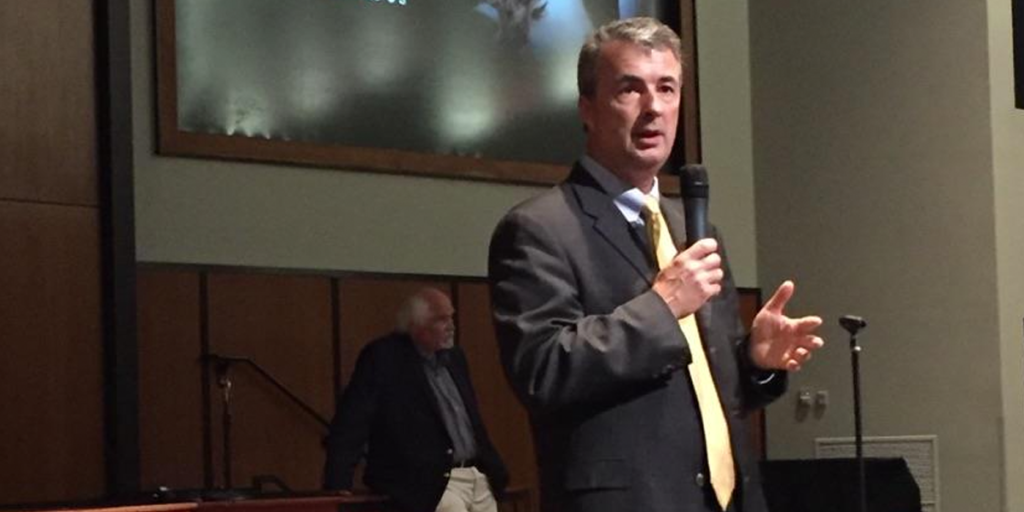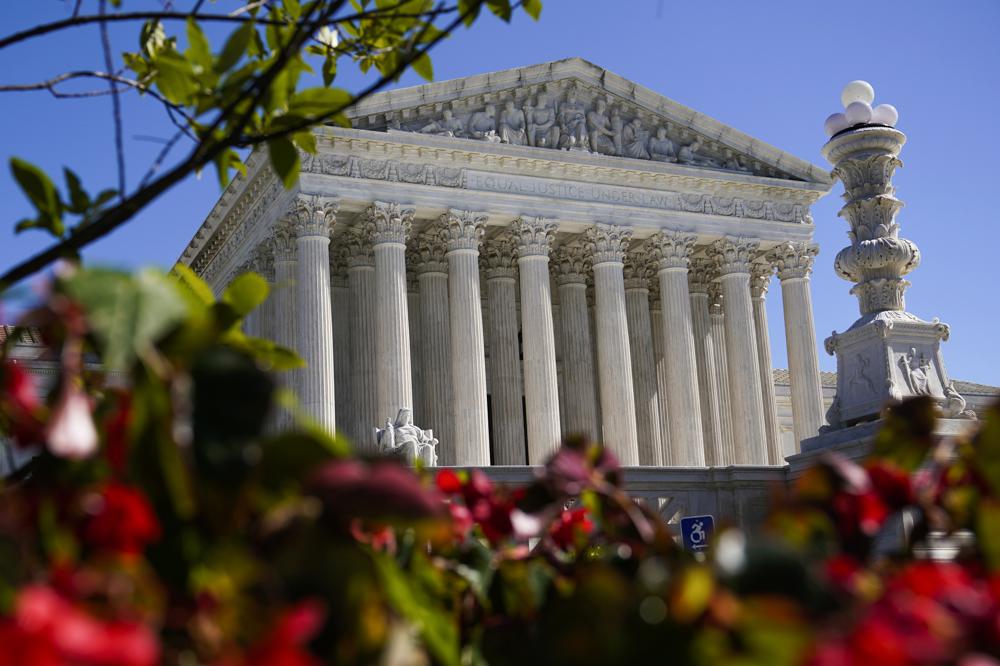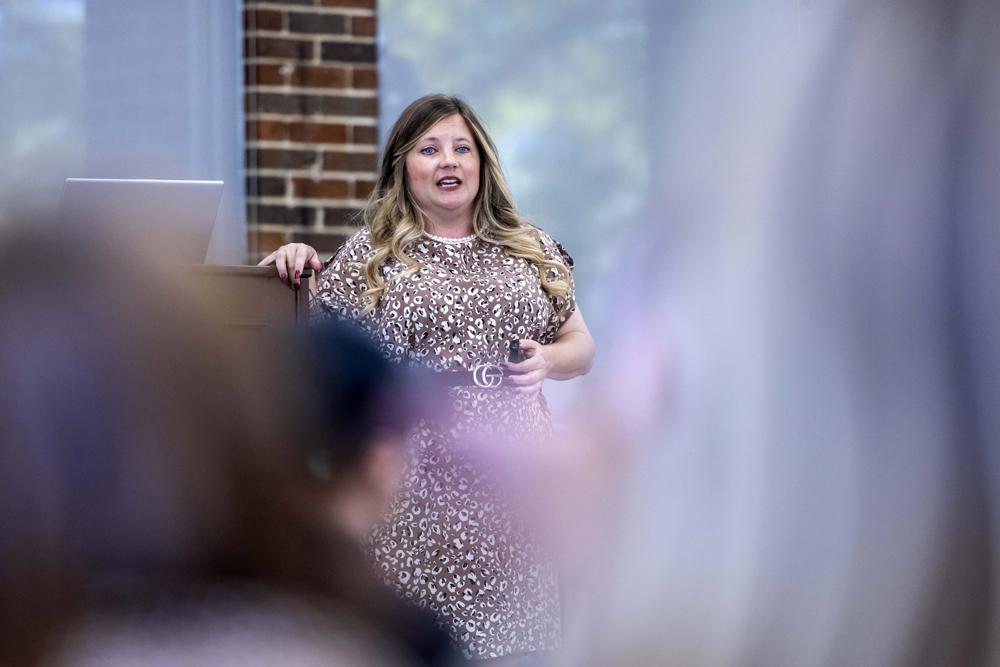Court of Criminal Appeals upholds murder conviction of Covington County woman

Alabama Attorney General Steve Marshall announced that the Alabama Court of Criminal Appeals has affirmed the conviction of Zhanna Shaye Bolling, age 34, for murder. On November 3, 2021, Bolling was convicted in Covington County Circuit Court for the murder of Ed Foster. Her conviction was upheld by the Court on October 7, 2022. “Ms. Bolling intentionally fired the shot that eventually took the life of Ed Foster, and for her crime, she was sentenced to 30 years in prison,” said AG Marshall. “Despite Bolling’s efforts to appeal her guilty verdict, she cannot escape justice.” On April 5, 2019, a River Falls Police Department officer responded to a 911 call and found the victim, Ed Foster, still alive, lying in the middle of the street, and suffering from an apparent gunshot wound to the head, Andalusia Star News reported. The officer testified that Foster told the officer that Bolling had shot him. Covington County Sheriff Blake Turman also arrived at the scene and spoke with Foster after he was transported to the hospital. The investigation later determined that Foster had been shot inside his house during an altercation with Bolling. The victim died approximately three weeks after he was shot. Covington County District Attorney Walt Merrell’s office successfully prosecuted this case and obtained a guilty verdict. The lower court sentenced Bolling to thirty years imprisonment for her murder conviction. Bolling appealed her conviction to the Court of Criminal Appeals. The Attorney General’s Criminal Appeals Division handled the case during the appeals process, arguing that Bolling’s conviction was just. The Alabama Court of Criminal Appeals affirmed Bolling’s conviction o in a decision issued Friday, October 7, 2022. Marshall commended Assistant Attorney General Laura Irby Cuthbert for her successful work on the appeal. He thanked Covington County District Attorney Walt Merrell and his staff for their assistance in defending the murder conviction. AG Marshall was appointed AG by then-Governor Robert Bentley in 2017. He was elected to his own term in the 2018 election. He is seeking a second term in the November 8 general election, where he faces Tarrant Police Chief Wendell Major. To connect with the author of this story, or to comment, email brandonmreporter@gmail.com.
Center Point voters reject tax increase

On Tuesday, Center Point voters went to the polls and rejected a controversial ad valorem tax increase by a 2 to 1 majority. 66.89% of voters who went to the polls voted against the tax increase. Just 33.11% of voters voted in favor of raising their property taxes. It was a bitter moment for Mayor Bobby Scott, who had campaigned hard to pass the tax increase. The Mayor released a statement after the vote. “I believe it’s important to offer our residents the best possible resources to improve their quality of life,” Scott said. “Those resources primarily consist of health and safety programs. The way we fund those resources is through various taxes we collect to run the city. Any attempts to increase that revenue are solely done with the intent to help the residents more efficiently.” “The ad valorem tax increase did not receive the majority of votes during yesterday’s special election,” Scott said. “Funds from the additional ad valorem tax would have helped the City of Center Point start a debris removal program and also fund other areas that are in need of improvements, such as parks & recreation, public safety, and education. The debris removal program would have provided debris removal on a regular basis for 6500+ homes in the city. Without this additional funding, the City of Center Point will not be able to start and operate this program in an efficient manner. This will impact salaries, equipment, and dumping fees. Operating at a deficit is not favorable for the city.” “Thank you to everyone that participated in the vote and exercised your democratic right to choose,” Scott added. “The City of Center Point will continue to do its best to provide services to the community in hopes of making lives better.” The tax increase would have authorized the levy of an additional rate of ad valorem taxation of 0.007% of assessed value each year for general municipal purposes. The City of Center Point is presently authorized to and does levy and collect general ad valorem tax at a rate of 0.005% of the value of property located in Center Point, which is assessed each year. A yes vote would have raised the city ad valorem taxes to a rate of $0.012% of assessed value each year. The owner of a $200,000 home would have seen a $140 increase in their taxes. The money would have been used to remove dilapidated structures, purchase a large item pickup service, and improve other city services. To connect with the author of this story, or to comment, email brandonmreporter@gmail.com.
High court rejects Donald Trump’s plea to step into Mar-a-Lago case

The Supreme Court on Thursday rejected former President Donald Trump’s plea to step into the legal fight over the FBI search of his Florida estate. The justices did not otherwise comment on turning away Trump’s emergency appeal. Trump had pressed the court on an issue relating to classified documents seized in the search authorized by a federal judge of Mar-a-Lago. The Trump team was asking the justices to overturn a lower court ruling and permit an independent arbiter, or special master, to review the roughly 100 documents with classified markings that were taken in the August 8 search of Mar-a-Lago. The move Thursday appears to greatly reduce the potential impact of the special master process to the ongoing Justice Department criminal investigation into the classified documents. A federal appeals court had already restored the department’s access to the classified documents, which had been the investigators’ primary goal. And the Supreme Court’s decision to stay out of the fray ensures that the special master will not have access to those same records as the FBI and Justice Department evaluate if criminal charges are merited. A three-judge panel from the Atlanta-based U.S. Court of Appeals for the 11th Circuit last month limited the special master’s review to the much larger tranche of non-classified documents. The judges, including two Trump appointees, sided with the Justice Department, which had argued there was no legal basis for the special master to conduct his own review of the classified records. But Trump’s lawyers said in their application to the Supreme Court that it was essential for the special master to have access to the classified records to “determine whether documents bearing classification markings are in fact classified, and regardless of classification, whether those records are personal records or Presidential records.” The Justice Department said in a Supreme Court filing that Trump’s request had no merit. The FBI says it seized roughly 11,000 documents, including about 100 with classification markings, during its search. The Trump team asked a judge in Florida, Aileen Cannon, to appoint a special master to do an independent review of the records. Cannon subsequently assigned a veteran Brooklyn judge, Raymond Dearie, to review the records and segregate those that may be protected by claims of attorney-client privilege and executive privilege. The Justice Department objected to Dearie’s ability to review the classified records, prompting the 11th Circuit to side with the department. The department also is appealing Cannon’s entire ruling to the 11th Circuit. Republished with the permission of The Associated Press.
Kay Ivey awards $19.3 million in grants for community improvements

On Thursday, Gov. Kay Ivey announced grant awards of nearly $19.3 million in grants to provide improvements in 49 Alabama towns, cities, and counties. The Community Development Block Grants (CDBG) are federal dollars from the U.S. Department of Housing and Urban Development (HUD). The HUD grants will be used by local governments to pave or resurface roads, eliminate blight and drainage problems, improve water or sewer service and build or improve local community centers and playgrounds. “Community Development Block Grants help communities address major needs whether it be supplying clean drinking water or eliminating dilapidated and unsafe structures,” said Gov. Ivey. “I congratulate the cities and counties who received grants in this keenly competitive process, and I wish them the best in improving their communities.” The CDBG money in Alabama is awarded annually in a competitive bid process that is based on several categories: small city (population 2,999 or less), large city (population 3,000 or more), county, and community enhancement. Planning grants are also awarded to help local governments examine needs and provide a vision for the future. The Alabama Department of Economic and Community Affairs (ADECA) administers the grants. “ADECA is pleased to be a part of a program that is so beneficial to cities and counties across our state,” said ADECA Director Kenneth Boswell.” I commend community leaders and planners for their efforts to improve the lives of their residents and make their communities better places to live.” The grants awarded and projects (grouped by geographical region) are: North Alabama · Belk – $400,000 to replace a major water line. · Berry – $400,000 for sewer line replacement and related improvements. · Cherokee – $362,422 for drainage and ditch improvements. · Colony – $399,827 for street improvements. · Courtland – $400,000 for water line upgrades and improvements. · Garden City – $389,800 to upgrade the town’s sewer system. · Guinn – $304,000 for street resurfacing and drainage improvements. · Hodges – $329,000 for downtown revitalization, including razing dilapidated buildings. · Jacksonville – $500,000 to replace sewer lines. · Lexington – $397,907 for water and fire suppression improvements. · Oxford – $500,000 for drainage improvements and demolition of dilapidated structures. · Pell City – $500,000 for water system improvements. · Rainsville – $500,000 to repair and replace sewer lines. · Ranburne – $400,000 to renovate the town’s senior citizen center. · Scottsboro – $400,000 to demolish and clear 26 dilapidated structures. · Steele – $400,000 to replace a main water line. · Valley Head – $400,000 for street and drainage improvements. · Winfield – $342,000 to demolish 18 dilapidated and abandoned/vacant structures. Central Alabama · Brent – $500,00 for sewer line rehabilitation. · Coosa County – $135,801 to resurface American Legion Road near Goodwater and Coosa County Road 38 in the Mt. Olive Community. · Coosada – $350,000 to demolish 30 dilapidated vacant or abandoned structures throughout the town. · Crenshaw County – $500,000 to resurface and relocate water lines on Starhope Church Road. · Forkland – $400,000 to upgrade the town’s park including constructing a pavilion and concession stand/bathroom facility. · Hale County – $500,000 for water system rehabilitation along Hale County Road 64 · Luverne – $400,000 for sewer line improvements and street paving. · Mosses – $400,000 for the resurfacing of Main Street. · Notasulga- $32,000 to develop a comprehensive city plan. · Randolph County – $500,000 to resurface and improve drainage along Randolph County roads 30 and 17 in the Rock Mills Community. · Roanoke – $500,000 to rehabilitate and resurface five streets. South Alabama · Ashford – $234,000 to make improvements on four streets. · Barbour County – $400,000 to construct a new senior citizen center in Clio. · Butler – $222,750 for a sewer line replacement. · Castleberry – $400,000 to rehabilitate the town’s water system and several streets, including adding fire hydrants. · Clayhatchee – $202,366 to provide lighting for a baseball field and to build a pole barn at the recreation park. · Coffeeville- $400,000 for roof replacement at the town’s community center. · Elba – $500,000 for street resurfacing and drainage improvements. · Florala- $375,655 to renovate the former Florala Middle School gymnasium. · Florala – $32,000 to develop a comprehensive city plan. · Geneva- $500,000 for housing rehabilitation as part of its neighborhood revitalization program. · Geneva County – $474,667 to resurface several streets in the Bellwood community. · Gordon – $400,000 for sewer line rehabilitation. · Jackson – $500,000 for drainage improvements. · Louisville – $400,000 for housing rehabilitation and demolition and clearance. · Madrid – $229,200 to resurface and make improvements on two city streets. · Monroe County – $500,000 to rehabilitate a portion of the Excel Water System serving the unincorporated Hillside Community. · New Brockton – $392,900 for housing rehabilitation. · Opp – $400,000 to resurface several streets. · Pinkard – $342,177 to resurface and make improvements on several city streets. · Vredenburgh – $337,125 to make improvements at the town’s community park including construction of a pavilion. · Washington County – $500,000 to resurface Mitchell Road east of Millry. ADECA administers an array of programs supporting law enforcement and traffic safety, economic development, energy conservation, water resource management, and recreation development. Kay Ivey is running for re-election on November 8. She faces Democrat Yolanda Rochelle Flowers and Libertarian Dr. James “Jimmy” Blake. Ivey was elevated to the office in 2017 when Gov. Robert Bentley resigned. She was elected to her own term in 2018. To connect with the author of this story, or to comment, email brandonmreporter@gmail.com.
Mississippi lawmakers on track to ban herbal drug Kratom

Mississippi lawmakers appear on track to pass legislation to ban kratom, an herbal drug that can be used for pain relief. Kratom is currently unregulated in most parts of the United States but has been outlawed by some states, including neighboring Alabama. A few local governments in Mississippi have also banned the substance amid concerns that it can be harmful. This is the second consecutive year lawmakers in the state have tried to either ban or regulate the green powdered substance. Rep. Lee Yancey, a Republican who leads the committee with jurisdiction over drug policy, told the Northeast Mississippi Daily Journal that he will advance legislation to ban Kratom. Kratom is derived from a tree that’s native to Southeast Asia. The U.S. Drug Enforcement Agency says the leaves can be crushed and then smoked, put into capsules, or taken with water or other liquids. The drug has been used to relieve muscle strains and as a substitute for opium; it has also been used to manage withdrawal symptoms from opioids. In 2017, the federal Department of Health and Human Services recommended kratom be given Schedule I status. The department rescinded this recommendation in 2018. A government report released in 2019 said kratom use was related to 91 overdose deaths in 27 states. Most who died had also taken heroin, fentanyl or other drugs. But kratom was the only substance detected in seven of the deaths. Members of Mississippi’s House Drug Policy Committee on Monday heard from both physicians who want the product banned and representatives of the Kratom industry who touted the drugs’ pain-relieving effects. “Of all the studies that have been done, the risk of using kratom far outweighs the benefits,” said Dr. Randy Easterling, a former Mississippi State Medical Association president. Mac Haddow, a senior fellow on public policy for the American Kratom Association, told lawmakers that when someone dies from a kratom overdose, it’s usually because the product has been tainted with other substances. Haddow proposed that lawmakers should keep kratom legal, but ban minors under 21 from purchasing it. Maddow also suggested lawmakers require the supplement to be “unadulterated.” Kratom can be ordered online. It can also be purchased at gas stations and convenience stores in Mississippi. Republished with the permission of The Associated Press.
With teachers in short supply, states ease job requirements

As schools across the South grapple with teacher shortages, many are turning to candidates without teaching certificates or formal training. Alabama administrators increasingly have hired educators with emergency certifications, often in low-income and majority-Black neighborhoods. Texas, meanwhile, allowed about one in five new teachers to sidestep certification last school year. In Oklahoma, an “adjunct” program allows schools to hire applicants without teacher training if they meet a local board’s qualifications. And in Florida, military veterans without a bachelor’s degree can teach for up to five years using temporary certificates. Decisions to put a teacher without traditional training in charge of a classroom involve weighing tradeoffs: Is it better to hire uncertified candidates, even if they aren’t fully prepared, or instruct children in classes that are crowded or led by substitutes? “I’ve seen what happens when you don’t have teachers in the classroom. I’ve seen the struggle,” Dallas schools trustee Maxie Johnson said just before the school board approved expanding that district’s reliance on uncertified teachers. He added, “I’d rather have someone that my principal has vetted, that my principal believes in, that can get the job done.” A Southern Regional Education Board analysis of 2019-20 data in 11 states found roughly 4% of teachers were uncertified or teaching with an emergency certification. In addition, 10% were teaching out of field, which means, for example, they may be certified to teach high school English but assigned to a middle school math class. By 2030, as many as 16 million K-12 students in the region may be taught by an unprepared or inexperienced teacher, the group projects. “The shortages are getting worse, and morale is continuing to fall for teachers,” said the nonprofit’s Megan Boren. In Texas, reliance on uncertified new hires ballooned over the last decade. In the 2011-12 school year, fewer than 7% of the state’s new teachers — roughly 1,600 — didn’t have a certification. By last year, about 8,400 of the state’s nearly 43,000 new hires were uncertified. The trustees in Dallas leaned into a state program that allows districts to bypass certification requirements, often to hire industry professionals for career-related classes. The school system has hired 335 teachers through the exemption as of mid-September. In Alabama, nearly 2,000 of the state’s 47,500 teachers didn’t hold a full certificate in 2020-21, the most recent year for which data is available. That’s double the amount from five years earlier. And almost 7% of Alabama teachers were in classrooms outside of their certification fields, with the highest percentages in rural areas with high rates of poverty. Many states have loosened requirements since the COVID-19 pandemic hit, but relying on uncertified teachers isn’t new. Nearly all states have emergency or provisional licenses that allow a person who has not met requirements for certification to teach. Such hires only delay the inevitable as the teachers don’t tend to stay as long as others, said Shannon Holston, policy chief for the nonprofit National Council on Teacher Quality. In a 2016 study, the U.S. Department of Education reported that 1.7% of all teachers did not have full certification. It went up to roughly 3% in schools that served many students of color or children learning English, as well as schools in urban and high-poverty areas. The use of such educators can be concentrated in certain fields and content areas. One example: Alabama’s middle schools. Rural Bullock County, for example, had no certified math teachers last year in its middle school. Nearly 80% of students are Black, 20% are Hispanic, and seven in 10 of all students are in poverty. Christopher Blair, the county’s former schools superintendent, long struggled to recruit teachers. Poorer counties can’t compete with higher salaries in neighboring districts. Blair, who resigned from his post last spring, had launched a program to help certify the county’s math and science teachers. “But that’s slowly changing as the teacher pool for all content areas diminishes,” he said. Birmingham and Montgomery each had three middle schools where more than 20% of teachers had emergency certification. Birmingham schools spokesperson Sherrel Stewart said officials seek good candidates for emergency certifications and then give them the support needed through robust mentoring. “We have to think outside of the box,” she said. “Because realistically, you know, that pool of candidates in education schools has drastically reduced, but the demand for high-quality educators is still there.” The number of teachers holding emergency certificates has increased dramatically in rural, urban, and low-income schools across Alabama since 2019 when lawmakers eased restrictions on the certificates. The highest percentage of such teachers in Alabama during the 2020-21 school year was in rural Lowndes County in an elementary school where seven of 16 teachers had an emergency certificate, up from three the previous year. Most of the school’s 200 students are from low-income families. Only 1% of students tested reached proficiency in math that year. For Dallas schools, “it’s about the passion, not about the paper,” said Robert Abel, the district’s human capital management chief. Dallas’ uncertified hires — who must have a college degree — participate in training on classroom management and effective teaching practices. Abel said the district is getting positive reports on the new teachers. Some teacher groups worry about inconsistent expectations for teacher candidates. A great teacher needs sensitivity and empathy to understand how a child is motivated and what could interfere with learning, said Lee Vartanian, a dean at Athens State University. A certification helps set professional standards to ensure teachers have content expertise as well as the ability to engage students, said Vartanian, who oversees the Alabama university’s College of Education. Uncertified teachers may have some of that knowledge, he said, but not the full range. “They’re just less prepared systematically,” he said, “and so chances are they’re not going to have the background and understanding where kids are developmentally and emotionally.” ___ AL.com’s Rebecca Griesbach contributed to this report. Republished with the permission of The Associated Press.


